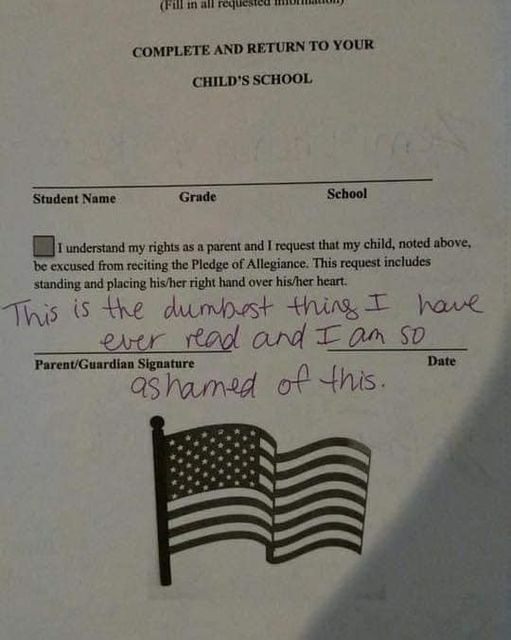A simple image has sparked a deep conversation about the intersection of freedom of choice, faith, and nationalism. At its heart, the picture highlights the power of freedom in a democracy, particularly the right of parents to decide whether their child participates in the Pledge of Allegiance.
In a democratic society, freedom is essential. It is built on the idea that individuals should be free to hold personal beliefs without external influence. For many, the Pledge of Allegiance is seen as a symbol of unity, patriotism, and love for the country. However, true patriotism extends beyond the act of reciting the Pledge. It lies in the freedom to express love for one’s country in diverse ways. A handwritten note on a form, likely from a parent, can be a powerful moral statement. Patriotism means standing firm in one’s beliefs, whether personal or religious. This quiet act of choice strengthens the very freedoms that unify the nation. The key takeaway is that honoring people’s right to make their own choices strengthens the nation. Forcing uniformity does not create unity—accepting diverse ways of expressing identity and belief does. Real patriotism embraces religious diversity as an integral part of the country’s character.
The discussion centers around choice. While some show patriotism by reciting the Pledge, others express their loyalty through community service, political involvement, or advocating for different perspectives. Protecting the right to choose is vital, as it upholds the democratic ideals that support the nation.
This image is a powerful reminder of what it means to live in a free society. The ability to think, speak, and believe freely is fundamental to true patriotism. Children and adults alike can choose whether to participate in the Pledge, showcasing the country’s commitment to individual freedom, the cornerstone of democracy.
